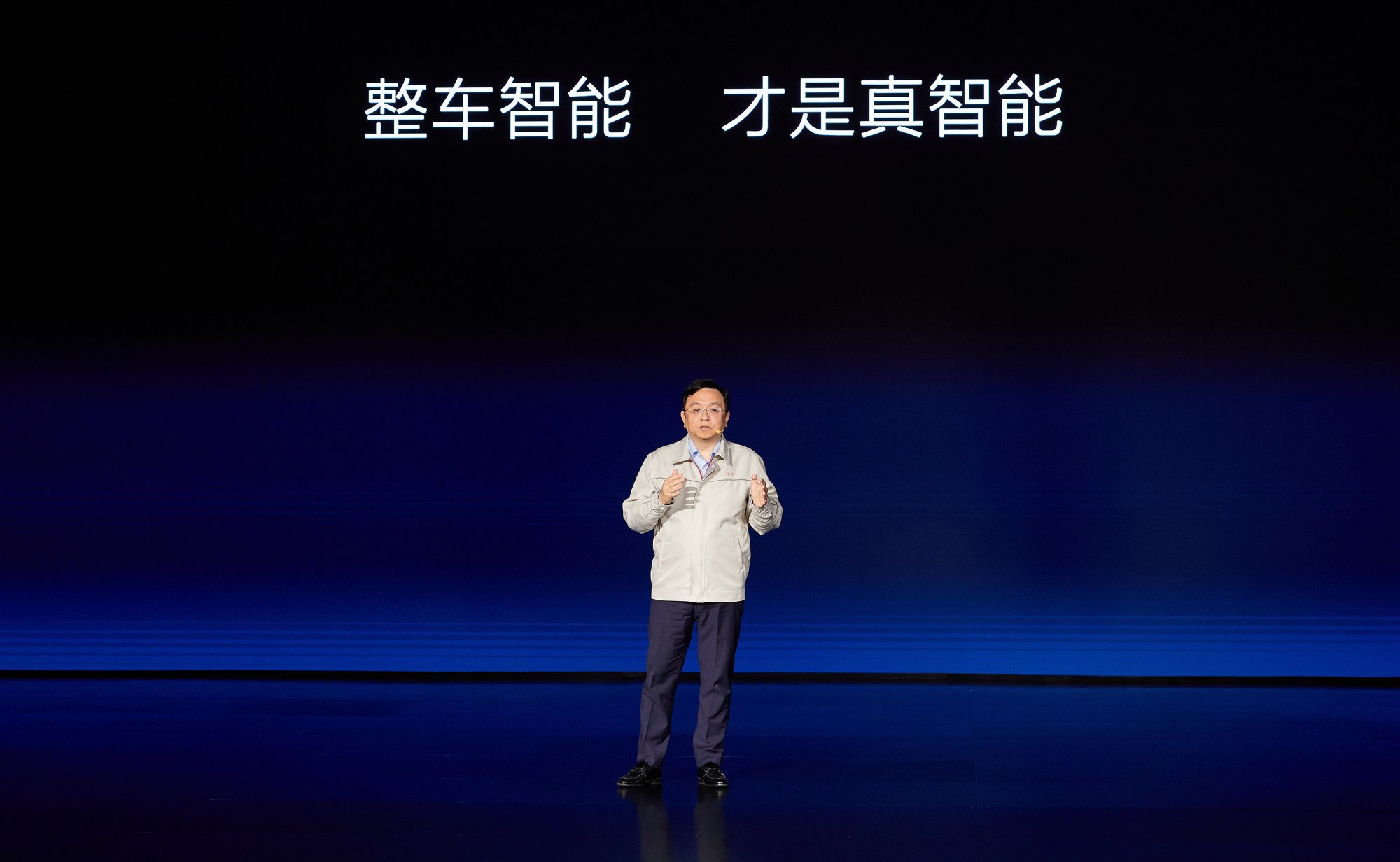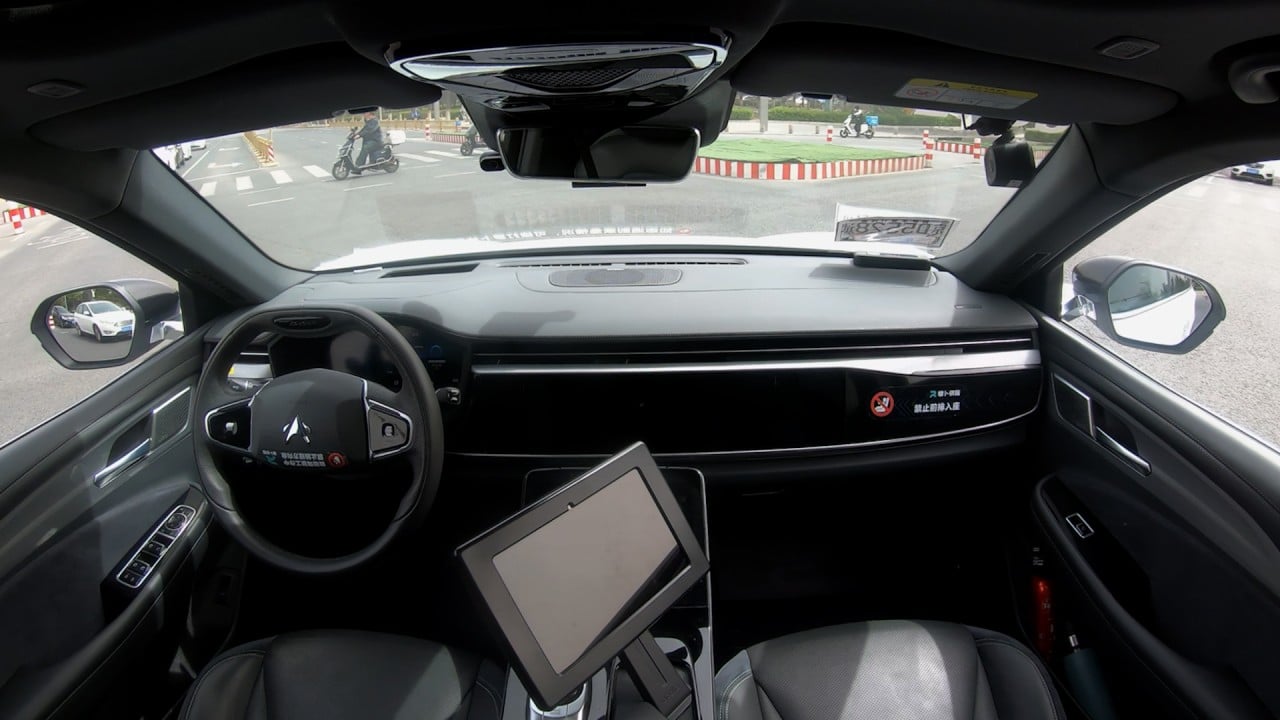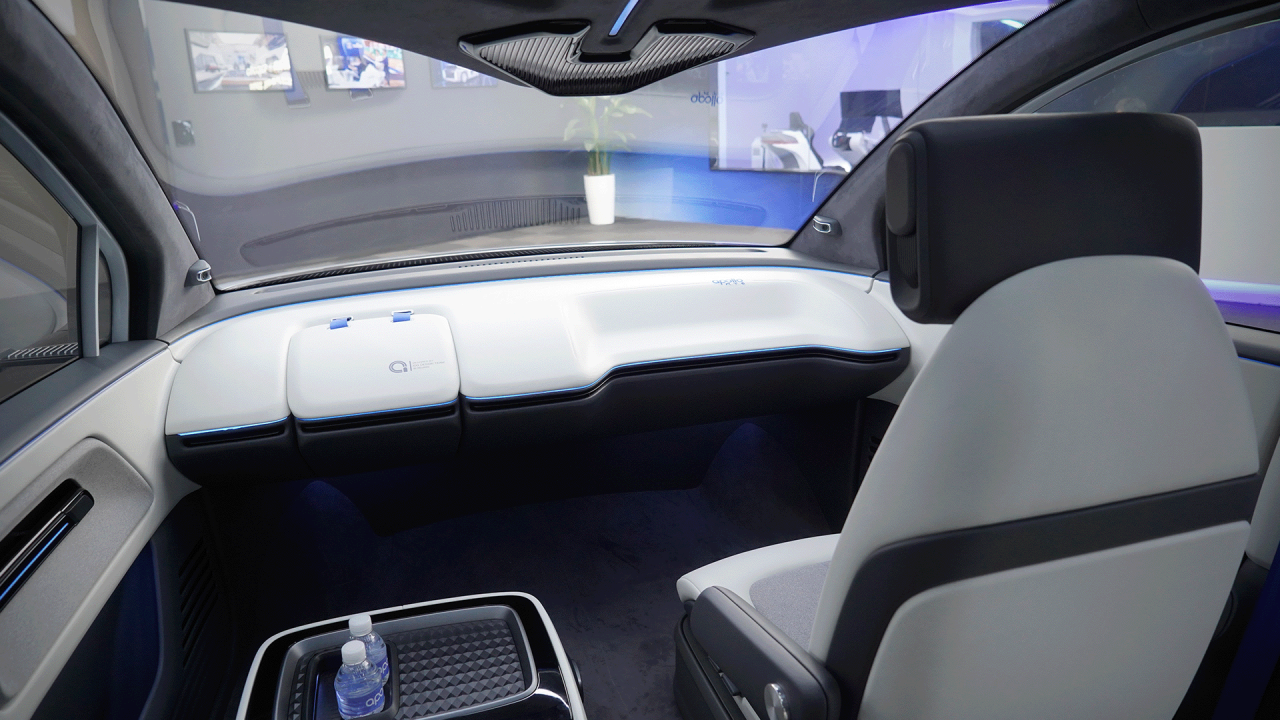China EVs: BYD plans US$14 billion investment to develop smart cars, seen as the next battlefield
[ad_1]
He was speaking at the company’s Dream Day event in Shenzhen on Tuesday to launch its smart car system, Xuanji.
The system integrates several technologies BYD has developed in both vehicle intelligence and electrification, enabling a car to perceive changes in the internal and external environment and adjust in real time to enhance driving safety and comfort, according to the company.
“The first half [of the game] is about electrification, the second half is about intelligence,” Wang said, without giving a time frame for the 100 billion yuan investment.

The company has more than 90,000 employees, with some 4,000 working on smart driving, including 1,000 algorithm and hardware engineers and 3,000 software engineers, Wang said.
EVs with the latest digital technologies have become a trend in China because young drivers give priority to autonomous driving systems and digital cockpits when scouting for new cars.
Intelligence is measured by a car’s digital bells and whistles through built-in features such as voice-activated controls, facial recognition, over-the-air software upgrades, phone compatibility and self-parking.
“Nearly all key Chinese EV builders are strengthening their research and development teams to make their cars smarter in terms of self-driving and in-car entertainment,” said Cao Hua, a partner at the Shanghai private-equity firm Unity Asset Management, which counts artificial intelligence (AI) and vehicle robots among its investments.
Telecom and smartphone maker Huawei, also a potential rival to BYD, in November invited at least four traditional carmakers to join its new smart car joint venture, which is launched with state-owned Changan Automobile.
There are more than 2.6 million BYD cars already equipped with L2 autonomous driving systems, according to the carmaker. According to SAE, a global standardisation body, L2 systems provide assistance to the driver but require active supervision.
In 2023, more than 57 per cent of the vehicles BYD sold came with smart driving systems, and the company expects to further increase the percentage this year.
Tesla loses US$94 billion in market valuation amid slow global EV market growth
Tesla loses US$94 billion in market valuation amid slow global EV market growth
Last year, BYD sold more than 3 million new energy vehicles, including pure EVs and plug-in hybrids, a year-on-year increase of 60 per cent, Wang said.
This year, BYD will launch more than 10 high-end smart driving models equipped with lidar (light detection and ranging) sensors, according to Wang. Models priced above 200,000 yuan will offer high-end intelligent driving assistance systems as an option, while it will be standard in models priced above 300,000 yuan, he added.
“With more automobile companies accelerating their deployment of urban NOA [navigation on autopilot], the trend of car intelligence is becoming increasingly clear,” Zhou Xuhui, analyst at Eastmoney Securities, said in a report on Tuesday.
“We believe that ‘intelligence’ will become an important criterion for measuring the core competitiveness of car companies in the future.”
Additional reporting by Daniel Ren
[ad_2]
Source link



